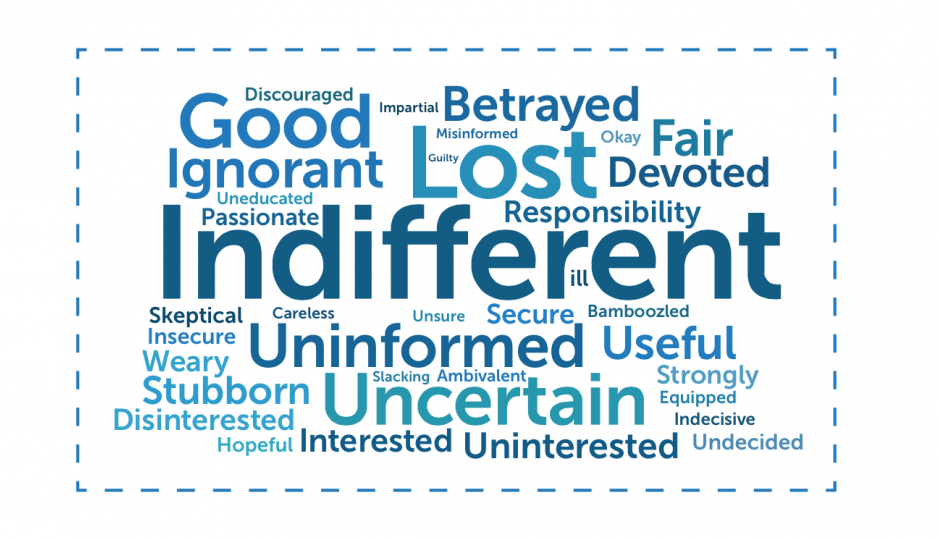Some Answers to a Vexing Question: Why Don’t Millennials Vote for Mayor?

This is how millennials “feel” about voting in local elections. Pull yourselves together, people. | Screenshot from Knight Foundation study.
Voter turnout in last month’s super high stakes mayoral primary election was abysmal. Just 27 percent of registered Philadelphia voters turned out. That’s the worst showing in a competitive mayoral primary in the city’s modern history.
We don’t yet know who voted and who did not, though that data should be available soon. But it seems clear at least that young adults did not vote in large numbers. That’s not a surprise. It’s the norm. But why? Why are young voters so indifferent, particularly when it comes to local elections?
The Knight Foundation took a stab at answering that vexing question in a new study that featured focus groups with “millennial drop-off voters,” or people age 20 to 34 who voted in the last national election, but didn’t cast a ballot when the top jobs in City Hall were on the line. They interviewed a total of 60 such voters spread over three cities, one of which was Philadelphia. A few themes emerged.
- The focus group participants felt there was a “lack of trustworthy information.” The drop-off voters didn’t feel informed enough to vote, and they “don’t know which sources to trust.” Basically they said there’s too little news about local elections, and the news that exists is biased.
- They were confused about what exactly City Hall does, and what impact local government has on ground level concerns like schools, jobs and transportation.
- Young voters “are surrounded by peers who themselves don’t vote and feel voting is not important.”
The report goes on to say that focus group participants “were most motivated by messages that were positive, elicited pride in their city and framed how voting could tangibly impact issues they find important,” and “they were less motivated by messages that were negative and cynical, and are especially tired of hearing that the system is broken.”
What’s all this worth? I’m not sure.
On the one hand, these gripes are begging to be dismissed. Disaffection with the media is hardly just a millennial trait, after all. And while it’s certainly true that local television pays minimal attention to local elections, there was plenty of coverage online and in print in Philadelphia this year for a voter of any age to make an informed decision about the mayoral primary. And this may just be my Gen X cynicism talking, but I have zero patience for young voters who cry foul whenever completely relevant (indeed, positively need-to-know) negative information about candidates is discussed. Sorry folks, but Jim Kenney’s past association with Vince Fumo actually is a subject worthy of being written about, even if the coverage doesn’t elicit that warm sense of civic pride you’re looking for. Similarly, one way to ensure systems stay broken is to pretend that they are not.
On the other hand, coverage of the City Council races was spare indeed, and stories about more obscure offices were basically non-existent. And outside of the election season, there’s not nearly as much attention paid to the intersection of City Hall and actual life in the city as there should be. That’s one of the big reasons we created this blog. Likewise, for those young residents who are new to the city, I’m sure that Philadelphia’s political system is opaque and confusing. But it’s not for the journalists who cover it every day (well, not as confusing anyway), and so we use shorthand where maybe we shouldn’t. Certainly a lot of Citified coverage assumes our readers are coming here with a pretty solid base of knowledge about how the city works.
How to fix all this? Well, the Knight report includes four suggestions put together by Lake Research Partners, which conducted the focus groups. They are:
- Engage millennials at recreational and cultural events.
- Put together a welcome packet for new residents including basic information about government and local elections.
- Create an app (naturally), about local candidates and issues.
- Recruit local celebrities for voter mobilization campaigns.
These feel … underwhelming. But, in the spirit of giving it a shot, Citified is going to experiment in the months to come with a Philly 101-style explainer series. It can’t hurt, right?